How RBC Supports Black Youth Embarking on their Career Journeys
Black youth in Canada have a strong drive to succeed, but face barriers to education such as differing treatment from teachers and a mistrust in institutions due to systemic discrimination.
These barriers contribute to negative feelings about educational attainment: a study cited by the Diversity Institute at Toronto Metropolitan University found that while 94% of Black youth aged 15 to 25 in Canada reported a desire to complete an undergraduate degree or higher, only 60% felt this was an achievable goal.
To address barriers faced by Black youth in accessing educational support, the RBC Foundation partners with multiple universities across Canada, providing both resources and funding to support the creation and expansion of culturally-aware student programs.
Addressing institutional gaps and combatting isolation
In Fall 2023, the RBC Foundation announced a $1.5 million gift to the Black Student Success Centre (BSSC) at Hamilton’s McMaster University, which itself launched in 2021.
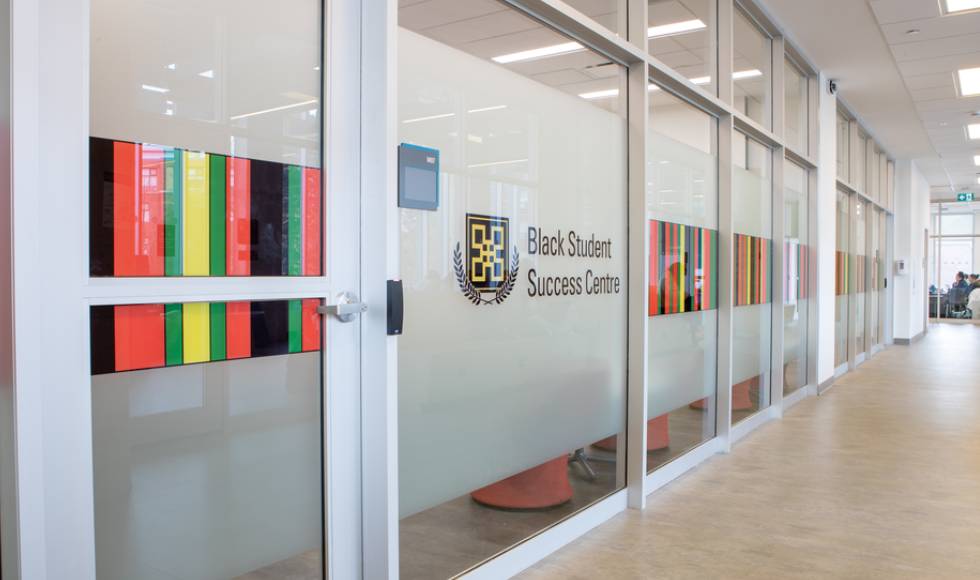
Photo: The Black Student Success Centre at McMaster University. (Photo by Georgia Kirkos/McMaster University
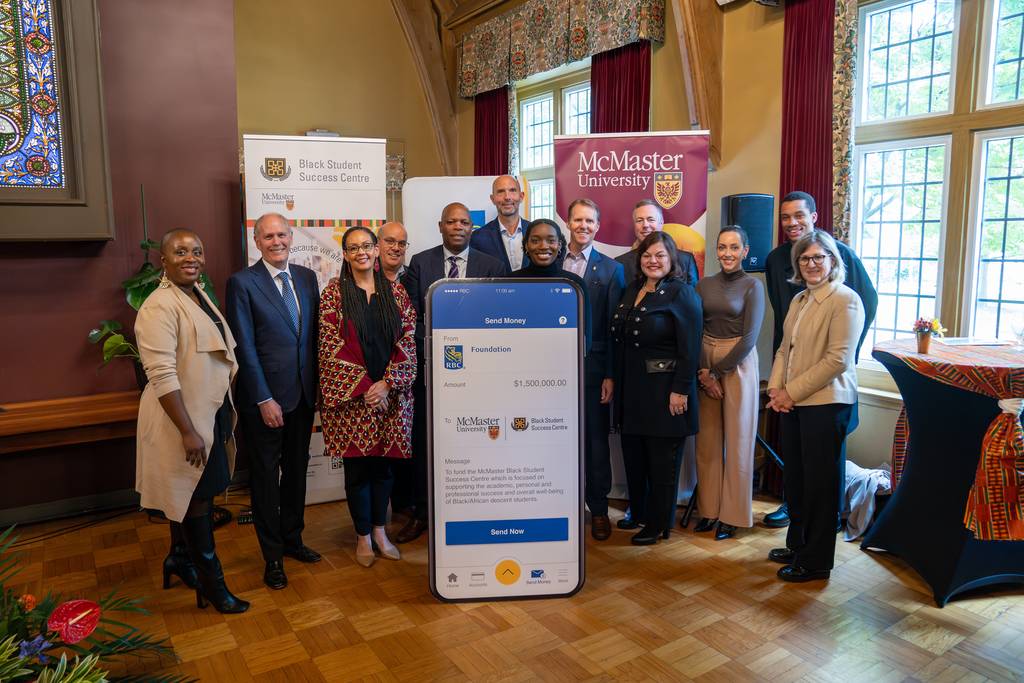
Photo: October 2023 launch event with McMaster University
The BSSC is a hub and connector for all Black youth in the McMaster ecosystem, including programs for high school students, culturally-aware support for students on campus, advisors to help students navigate all the resources available at McMaster, and an alumni support program to help students transition into their chosen career fields.
The reason for the Centre, said Faith Ogunkoya, the Manager of Black Student Success at McMaster University, is simple: reducing isolation throughout the student journey.
Ogunkoya said Black people are still woefully underrepresented in higher education, which contributes to many Black students feeling isolated, alone, and different. When that happens, students don’t leverage the resources available to them, which sets them behind peers.
The partnership with McMaster is just one of multiple nationwide, all part of the RBC Foundation’s commitment to build a culture of inclusivity that helps its employees, clients, and local communities thrive. To that end, the RBC Foundation partners with the Experiential Learning in Innovation, Technology, and Entrepreneurship (ELITE) Program for Black Youth at the University of Alberta in Edmonton, the Jean Augustine Canadian Youth Initiatives & Data Hub at York University in Toronto, and the Promoting Leadership in health for African Nova Scotians (PLANS) initiative at Dalhousie University in Halifax.
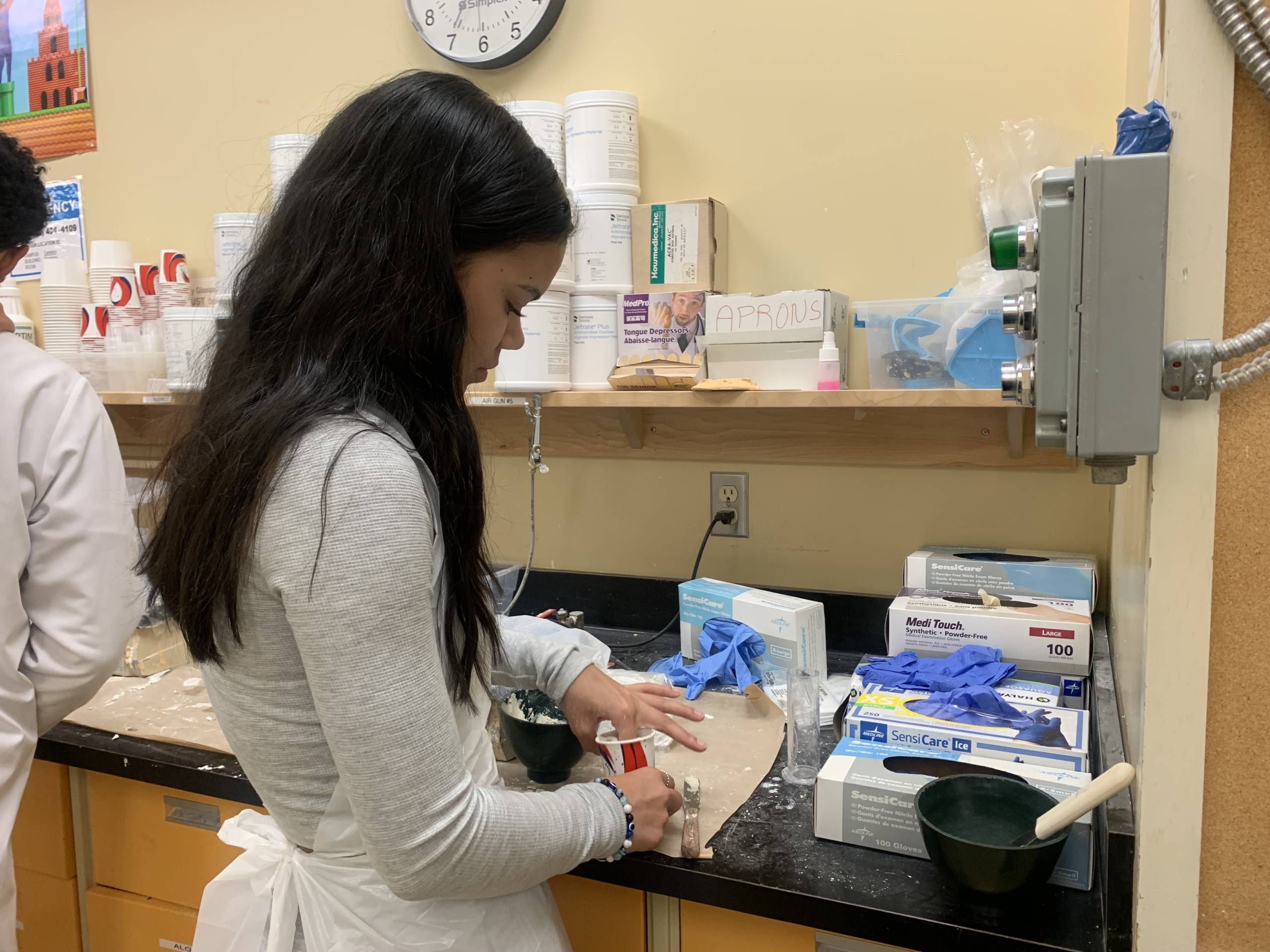
Photo: A student prepares molds used for dental impressions at PLANS (photo credit: Dalhousie University)
In addition to university partnerships, RBC is also the title sponsor for the Black Law Students’ Association National Conference and a supporter of the 1834 Fellowship Program, which helps Black youth aged 18-25 who want to enter into civic leadership roles.
“These programs are powerful and need to exist because it affirms identity. They bring people together in higher numbers, and offering culturally-responsive, specialized programs and services mitigate social isolation. When you mitigate that social isolation, you empower people for success,” said Dr. Clare Warner, Senior Advisor, Equity, Inclusion and Anti-Racism at McMaster.
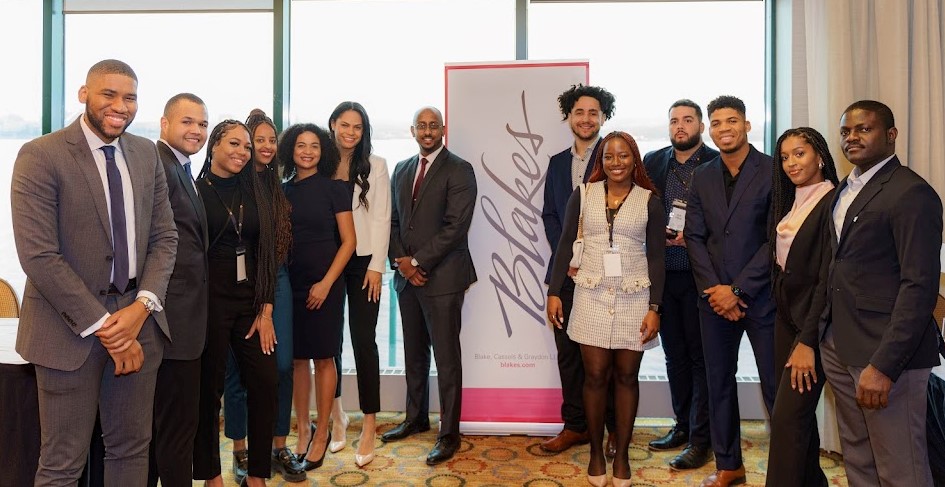
Photo: Career Fair Day at Black Law Students’ Association of Canada’s National Conference (photo credit: Black Law Students’ Association of Canada)
Resources for an elevated student experience
James Esemu-Ezewu, a student at McMaster, said he’s leveraged regular counselling sessions from the BSSC’s in-house psychotherapist, the result of which has been a significant growth in his self-esteem and confidence in his place on campus. He’s also been able to take advantage of the BSSC’s scholarship bank and additional mentorship resources for his academic journey.
“The extensive reach of the BSSC and dedication to Black student empowerment have made all the difference in my student experience at McMaster,” said Esemu-Ezewu.
Malikca Lawrence, another McMaster student, added that the BSSC’s programming has been “fundamental” to her student experience. In particular, it provided a community that offered a sense of belonging and a group of peers to lean on for mutual support.
“Simply put, the BSSC has elevated my student experience to a point beyond what I could have ever envisioned,” said Lawrence.
For program participants across Canada, the effect is exposure, support resources, and empowerment.
“By offering hands-on experiences, mentorship, and exposure, the program empowers students to make informed decisions about their future careers,” said Timi Idris, Program Manager for PLANS at Dalhousie University. “The program contributes to increasing diversity in healthcare, promoting cultural competence, and creating a lasting positive impact on community well-being and leadership development.”
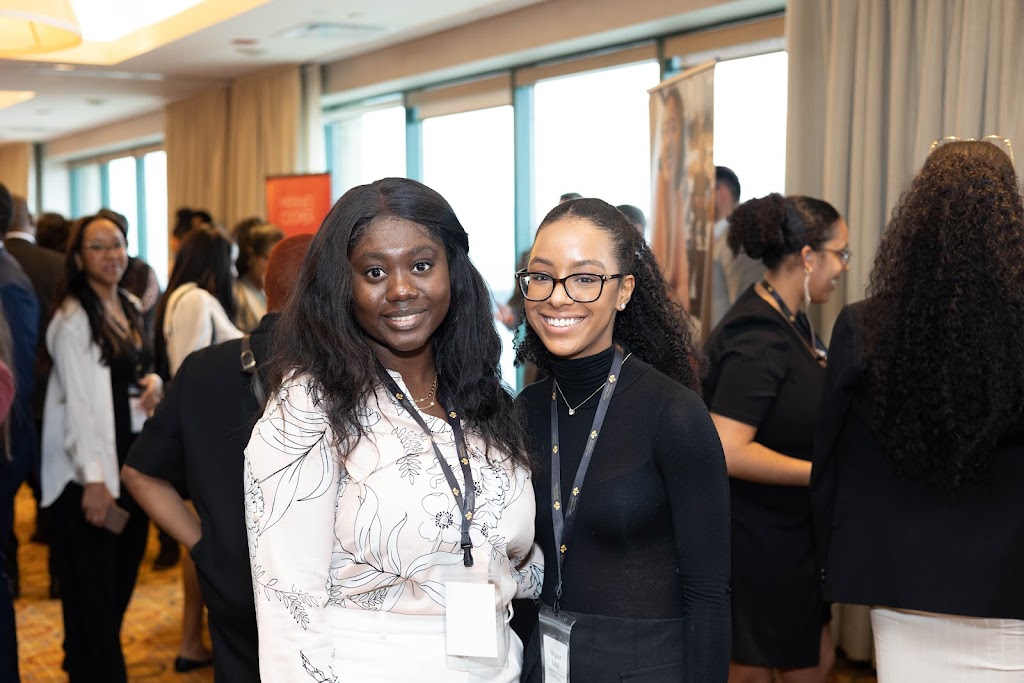
Photo: Career Fair Day at Black Law Students’ Association of Canada’s National Conference (photo credit: Black Law Students’ Association of Canada)
Building a future launchpad for Black youth
With programs like the BSSC, ELITE, the Jean Augustine Hub, and PLANS, there are more initiatives than ever before to support and empower Black youth. But at the same time, university is an expensive undertaking with financial barriers.
In an effort to help with the rising cost of post-secondary education, the RBC Foundation offers the RBC Future Launch Scholarship for Black Youth, awarding 20 scholarships annually valued up to $10,000 per year alongside mentorship, networking, and career planning support.
And when Black youth get access to tailored programming and mentorship, the data shows that they thrive. For example, a recent Mentor Canada study found that 58% of Black youth said their mentor helped connect them with additional support resources and 50% said their mentor helped them acquire job-specific skills.
“It’s taken a lot of convincing but now I believe that the world is open to me,” said Esemu-Ezewu. “If I want to pursue a career in a particular sector, I know I can. If I want to go for a Masters, I know the faculty members I need to talk to. If I need help with tuition, I know where to find scholarships and financial literacy resources.”
This article originally appeared on New & Stories on Feb 5, 2024.
This article is intended as general information only and is not to be relied upon as constituting legal, financial or other professional advice. A professional advisor should be consulted regarding your specific situation. Information presented is believed to be factual and up-to-date but we do not guarantee its accuracy and it should not be regarded as a complete analysis of the subjects discussed. All expressions of opinion reflect the judgment of the authors as of the date of publication and are subject to change. No endorsement of any third parties or their advice, opinions, information, products or services is expressly given or implied by Royal Bank of Canada or any of its affiliates.

